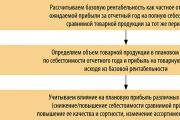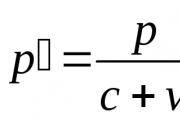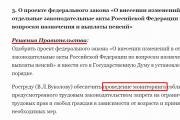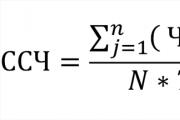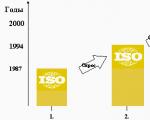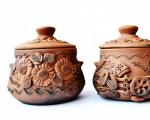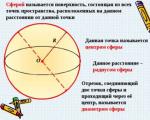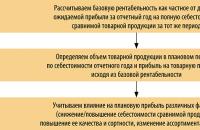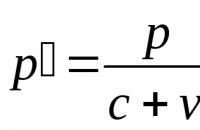Mineral powder is produced from carbonate rocks by fine grinding on special equipment. It is used as an additive in the production of asphalt pavements. When adding the product to the asphalt mass, its strength, wear resistance increases, and other characteristics improve.
This product is a residue from the crushing of limestone rocks. The most common form of mineral powder is dolomite or rock powder. High-quality material is a finely dispersed product.
Mineral powder is used to produce asphalt. This product gives the road surface strength and makes it denser. The product is added to asphalt mixtures in clearly regulated quantities. The introduction of carbonate powders into mixtures makes it possible to extend the service life of asphalt pavements.
Coatings with the addition of carbonate powder are resistant to corrosion. Sometimes the absence of this product is compensated by adding bitumen, this leads to an increase in the cost of asphalt and a deterioration in its quality.
This product is used to bring bitumen into a thin-film state. With the introduction of mineral powder mixtures, concrete becomes more durable and heat-resistant. In combination with bitumen resin, it creates an astringent effect and structures the system.
The hydrophobicity of the product ensures uniform distribution of the powder throughout the bitumen. It reduces the water saturation of asphalt materials, prevents the absorption of atmospheric moisture, and increases the service life of road surfaces.
The production of asphalt concrete is also not complete without carbonate powder; it fills the smallest pores, producing a clogging effect.
Asphalt plants use two varieties of the product - with and without surfactant activation. The activated product requires the creation of additional conditions for transportation and storage in warehouses.
Specifications
This product is finely dispersed, it has a large surface area due to the small size of the particles included in its composition. Thanks to this structure, the limestone product has adsorbing properties. When the product is added to bitumen, it adsorbs it onto itself, giving strength to the asphalt surface.
This product is produced by finely grinding limestone rocks and dolomite. To obtain activated powder, bitumen and surfactants are added to ordinary mineral raw materials.
Technical characteristics according to GOSTG:
- the water content in the product does not exceed 0.5%;
- swelling upon contact with bitumen resin does not exceed 1.8%;
- the amount of substances insoluble in water is not standardized;
- the product is a free-flowing, dry powder without foreign impurities;
- provided that storage and transportation requirements are met, its service life is unlimited.
The standard by which the finished product is produced applies to both activated and non-activated powder. For products obtained from non-carbonate rocks GOST 51 129 – 2003 does not apply.
This powder, when mixed with bitumen, absorbs most of it. Thanks to this, asphalt acquires the necessary characteristics. At the same time, the quality of the final material, that is, the asphalt pavement, increases significantly.
These products are manufactured according to GOST 512129-2003. The standards regulated by this GOST also apply to activated powder mixtures consisting of dolomite, lime and other minerals. The standard does not apply to mineral mixtures obtained from non-carbonate rocks.
Species
The industry produces two types of product - activated and non-activated. The use of one or another type of raw material is determined by the requirements technical specifications requirements for the product. On at the moment There are two brands of mineral powder on sale - MP1 and MP-2.
Mineral powder mixtures are also obtained by processing industrial waste, such as substandard concrete and broken bricks.
Activated
The product contains additives of surfactants. These additives give the powder water-repellent properties. Activated mixtures are obtained by grinding various fossil rocks and industrial wastes; surfactants are used as additives.
Surfactants give the powder water-repellent properties. The use of one or another type of raw material depends on the technical requirements that apply to the finished product. At the moment, there are two brands of mineral powder on sale - MP1 and MP-2.

Mineral powders exist different quality. To improve the quality of the product, so-called chemical-physical activation is performed; this type of powder owes its name to this procedure. As a result of activation, the final product has the following beneficial properties such as hydrophobicity, increased adhesion.
Not activated
The name of this powder speaks for itself. Due to the fact that the product has not undergone the activation procedure, its quality may be slightly worse than that of its activated analogue. Non-activated mineral powder is produced from carbonate rocks using special crushing equipment.
Classification by brand and state standard
Non-activated material is obtained from carbonates by grinding them in crushing units. MP-1 grade powder is produced in accordance with GOST R52129-2003.
Scope of application
Mineral carbonate powders are the main component asphalt concrete. At the expense of their unique properties this component gives asphalt the necessary properties, namely:
- strength;
- resistance to deformation;
- resistance to strong pressure;
- elasticity.
Also, adding carbonate powder helps prolong the life of the asphalt pavement. This product has no expiration date.
Mineral mixtures are actively used in industries such as construction.
Road construction
Mineral powders are actively used in road construction for the reason that they have the ability to convert bitumen into a thin-film state, which leads to an increase in the viscosity of asphalt concrete. Road surfaces with the addition of mineral powder are more durable and last longer.

Production of dry construction mixtures
The product is often used as a filler for building mixtures. Mixtures with carbonate powder additives should be applied in a thin layer.
Adding to concrete
Mineral powder has a positive effect on the properties of concrete; to some extent, it enhances its strength and resistance to deformation. The product helps reduce moisture absorption. The quality of cement depends on the amount of carbonate powder. The more it is, the better the quality of the cement and vice versa.
This material is the remains of crushing limestones and dolomites and is sold in the form of stone flour or dust. It is an integral component in the production of asphalt.
Mineral powder accounts for approximately 90% of the total surface of the grains that make up asphalt concrete. It can be used in the production of asphalt mixtures of various categories.
The required amount, calculated in the right proportions, increases the density of the mineral composition, and therefore the density of asphalt.
Its use in the correct proportions also ensures the corrosion and deformation resistance of the road surface. If the powder is used in small quantities, there will be a need to increase the bitumen content, as a result of which the material will become of lower quality and at the same time more expensive.
Application of mineral powder
There are two main uses of mineral powder. The first is to convert bulk bitumen into a thin-film state.
Bitumen in this form becomes more heat-resistant, durable and is characterized by increased viscosity. Together with bitumen, the powder forms a dispersed structured system, which is the binding material in asphalt concrete.

Its high hydrophobicity allows it to be distributed evenly in bitumen. Another advantage of its use is the prevention of moisture penetration and reduction of water saturation of asphalt, as a result of which the service life of the road surface increases significantly.
In addition, it can be used in asphalt concrete, where a significant amount of clay particles is present. The second purpose of mineral powder is to fill small pores between large particles.
The use of mineral powder is not limited to asphalting alone. It is also used:
As a filler for dry mixtures and roofing materials;
as an additive to concrete mixtures;
as a soil deoxidizer agriculture and additive in the production of animal feed;
V chemical industry for the production of plastics, linoleum, roofing felt, cleaning products and soft roofing.
What types and brands of mineral powder are there?
The main consumers of mineral powder are asphalt production plants. They use two types of powder - activated and non-activated.
Activated is more demanding in storage and transportation, however, provided that the rules are followed, its shelf life is not limited.
Activated powder is considered to be the one in which bitumen and surfactants are added at a one-to-one ratio so that the particles do not absorb water.

The choice of a particular powder, in particular its brand, for preparing asphalt depends on the technological requirements for the components of the mixture. There are two brands (MP-1 and MP-2), they differ in the composition of raw materials and in the specified output characteristics.
Delivery of mineral powder is carried out on special cement tank semi-trailers. In essence, the transportation of mineral powder is identical to the delivery of cement. The same principles of loading and unloading, the same requirements for transporting vehicles. At the manufacturing plant, mineral powder is pumped into the tank of a cement truck. At the unloading site, the cement truck is connected to the receiving line of the storage tank using a special hose. The driver of a cement truck, using a compressor mounted on the vehicle chassis, pumps air into the cavity of the barrel to create pressure in it. Then, the valves on the receiving line and on the unloading pipe of the cement tanker are opened, and the pumping of mineral powder begins. Air is pumped into the tank throughout the entire unloading time until the powder is completely blown out.
The final price of mineral powder for asphalt concrete depends on many factors, such as: the remoteness of the unloading site, the expected volume of supply and the naturally required brand of product. We suggest that you familiarize yourself with the average market prices for MP-1 mineral powder and fly ash
The price of mineral powder with delivery to other regions is calculated in a similar way. For example, it is necessary to supply mineral powder to the city of Mineralograd. The approximate distance from Moscow to Mineralograd is 240 km. Accordingly, the cost of a ton of mineral powder with delivery to Mineralograd will be: 1450+(240 x 2 rubles) = 1930 rubles. Naturally, in each specific case the price is negotiable and depends on many factors.
Mineral powder
Mineral powders are essentially stone flour, dust. The production of mineral powder is based on crushing and fine grinding of limestone and dolomite, as well as solid waste. industrial production. The main area of application of mineral powder is the production of artificial asphalt at asphalt concrete plants, where mineral powder serves as a filler that increases the viscosity and adhesive ability of bitumen. Thanks to the adsorbent surface, the mineral powder absorbs a significant part of the petroleum bitumen, giving the asphalt concrete the required characteristics: strength and resistance to deformation. Thanks to this, the quality of the resulting asphalt concrete, and in fact the entire future road surface, increases significantly.
Due to the increase in recent years, the volume of road construction, the demand for the products of asphalt concrete plants has significantly increased: asphalt concrete and ready-mixed concrete. This could not but affect the growing demand for mineral powder for asphalt concrete and asphalt. Unfortunately, the enterprises producing mineral powder were not ready for such volumes of consumption. And special transport - cement trucks designed for transporting mineral powder and cement - were in short supply.
Mineral powders are divided into non-activated and activated. The latter contain a specially selected mixture of surfactants, including petroleum bitumen. Depending on the raw materials used and design characteristics, mineral powders are divided into two main brands: MP-1 and MP-2.
- Mineral powder MP-1 - activated or non-activated mineral powders obtained by grinding carbonate rocks, as well as powders from bitumen raw materials.
- Mineral powder MP-2 - mineral powders from non-carbonate rocks and powders obtained from secondary industrial waste: grinding metallurgical slag, thermal power plant fly ash, cement fly ash, etc.
In addition to the brand, mineral powders differ in grain composition, hydrophobicity, porosity and initial moisture content, swelling of samples from a mixture with bitumen, specific effective activity, etc. The choice of one or another type of powder depends on the brand and type of asphalt concrete in which it will be used as a raw material. Naturally, this is regulated by the requirements of asphalt concrete plant technologists who order mineral powder for specific brands and types of asphalt concrete.
Mineral powder for asphalt concrete mixtures (non-activated) GOST R 52129-2003 grade MP-1
- Mass fraction of moisture, no more than 1.0%
- Grain composition, by weight:
- finer than 1.25 mm. 100%
- finer than 0.315 mm. 90-95%
- finer than 0.071 mm. 70-80%
- Porosity, no more than 30-35%
- There is hydrophobicity
- Swelling of samples from a mixture of powder and bitumen, no more than 1.8-2.5%
- Specific effective activity of natural radionuclides, Bq/kg, no more than 370
The mineral powder that our company offers is the most important component of asphalt concrete mixtures. It is this that gives asphalt concrete the required degree of plasticity, making it both strong and wear-resistant.
Mineral powder promotes the adsorption of most of the bitumen and increases the ability of asphalt concrete to withstand various plastic and elastic deformations. This leads to a significant improvement in the quality of the road surface, making it more durable and economical to operate.
Types of mineral powder
Mineral powder is essentially dust of dolomite and limestone, which is obtained in the process of crushing these rocks. Mineral powder is used, as a rule, in the production of artificial asphalt, in which it is a filler that improves adhesive and binding characteristics bitumen
At the moment, mineral powder is presented in several varieties, which differ in their characteristics and composition. Based on this, it is possible to distinguish between non-activated and activated mineral powders. Activated mineral powder differs from non-activated mineral powder in that special surfactants are added to its composition during production, which help improve its properties and the final characteristics of asphalt concrete.
Brands of mineral powder
In addition, mineral powder is divided into brands, of which the most popular and widespread are MP-1 and mineral powder MP-2.
MP-1 mineral powder can be activated or non-activated. It is actively used in the production of asphalt concrete mixtures and is obtained from carbonate rocks. Due to the fact that this brand of mineral powder has good swelling properties, bitumen capacity and porosity, it has a wide range of applications. The MP-1 grade, in addition to the production of asphalt concrete, is used for the production of dry mixes, in the chemical and metallurgical industries, and in cardboard and roofing felt production. Also, mineral powder of this brand can be used in the manufacture of insulation materials.
MP-2 mineral powder is made from non-carbonate rocks, as well as from secondary industrial waste, such as grinding metallurgical slag, cement fly ash, thermal power plant fly ash, etc. The composition of MP-2 powder is a mixture of magnesite and talc minerals. Thanks to this combination of mineral powder, MP-2 has found wide application where increased plasticity, fire resistance, hydrophobicity and chemical inertness are required.
In addition to classification by grade, mineral powder also differs in hydrophobicity, grain composition, humidity, porosity, specific effective activity, swelling and other characteristics.
The choice of mineral powder is made taking into account the type and grade of asphalt concrete in which it will be used as a filler. The parameters of the substances that make up a certain brand of asphalt concrete are regulated technological requirements manufacturing plants. Based on these requirements, mineral powder of a certain brand is ordered.
Our company offers mineral powder of all popular brands. Our products meet all GOST requirements and can be used both for the production of asphalt concrete and for the production of dry mixes, animal feed, for soil deoxidation and for other purposes.
Mineral powder brand MP-1 is a powder filler obtained by fine grinding of carbonate mineral rocks - calcium carbonate to a fraction of 300 micrometers. Mineral powder: material obtained by grinding rocks or solid waste from industrial production. Carbonate rock: Sedimentary rock consisting of more than 50% one or more carbonate minerals, such as limestones, marbles, dolomites and transitional varieties between them.
What is non-activated mineral powder?
MP-1 for asphalt concrete and organomineral mixtures is a filler obtained by crushing, grinding and subsequent drying of carbonate minerals.
Find out more
UZSM produces MP-1 based on calcium carbonate - ground marble. MP-1 mineral powder is one of the most necessary components of an asphalt concrete mixture. Mineral powder MP-1 adds the necessary elasticity to asphalt concrete, increasing its strength and wear resistance.
The developed surface of such a component of asphalt concrete, such as mineral powder, adsorbs most of the bitumen, increases the ability of asphalt concrete to deform, thereby significantly improving the quality of the road surface, extending its service life and providing significant savings in operation. Increases the density and uniformity of asphalt concrete.
Scope of application
The main area of application of mineral powder is the production of asphalt at asphalt concrete plants, where mineral powder serves as a filler that increases the structure, viscosity and adhesive ability of bitumen, improves the plasticity, elasticity, and strength of the asphalt mass, which ultimately leads to an increase in the durability of the road surface.
Find out more
Strict modern requirements for the quality of highways from the state necessitate the use of higher quality components, in particular mineral powder, for the production of asphalt concrete mixtures.
Of all the structural elements of a highway, the top layer of asphalt concrete pavement operates in the most difficult conditions. On the one hand, this is the influence of static influences and dynamic transport loads and the associated shearing, tensile and bending forces, leading to the occurrence of stresses in the coating. A material with a sufficient margin of strength can withstand such stresses. Increasing traffic intensity every year poses the urgent task of creating a durable asphalt concrete pavement that is resistant to the effects of variables in magnitude, speed and repetition of application, loads from moving vehicles in any critical periods.
This is where the influence of high-quality mineral powders on the properties of asphalt concrete should manifest itself. Strengthening the structured dispersed system of bitumen - mineral powder, increasing the density and strength of the asphalt concrete mass improves the resistance to deformation and other transport and operational indicators of road surfaces.
On the other side, important factor affecting the road surface are climatic conditions. Under the influence of atmospheric oxygen, solar radiation, temperature changes, and precipitation, irreversible physical and chemical processes occur in asphalt concrete, leading to aging, as a result of which its deformability and corrosion resistance are reduced.
When exposed to low temperatures, a brittle rupture of the road surface is possible, leading to the appearance of cracks on its surface, and then potholes as a result of the expansion of frozen water that has entered through the cracks into the asphalt surface. High-quality mineral powder significantly improves the most important physical and mechanical properties of asphalt concrete: it reduces water permeability or water saturation, increases frost resistance, which significantly slows down the process of cracking.
Production of MP-1 mineral powder
Mineral powder MP-1 is produced according to regulatory document GOST R 52129-2003 and is used in the production of asphalt concrete mixtures, dry mixes, in the chemical, metallurgical and glass industries, UZSM also produces Mineral powder with increased consumer requirements for elasticity and softness TU 5716-004-91892010-2011.
Mineral powder for roads
The construction of roads and major highways in Russia and neighboring countries is gaining momentum thanks to the availability of mineral powder MP-1 R GOST 52129-2003. Mineral powder prevents moisture penetration, reduces water saturation of the coating, which has a positive effect on the service life. The priority is the possibility of using it in asphalt concrete, where clay particles are present, this can significantly reduce costs in road construction.
Types of mineral powder MP-1
Mineral powder is divided into several types: activated (fully hydrophobic MP-1A) and non-activated (non-hydrophobic MP-1)
Types of mineral powder
It is also customary to divide mineral powder into grades: grade 1 - obtained by grinding carbonate rocks to a precise fraction of 300-315 microns. Grade 2 - Obtained by processing waste from the main production of carbonate rocks of the 300-800 micron fraction with inclusions. Chemical composition grades are completely identical, but the cost of grade 1 is significantly higher when grade 2 is supplied at the price of sand.
Find out more
When choosing a mineral powder, you should take into account the type of asphalt concrete in which it will be used, since it varies greatly in such parameters as granularity, hydrophobicity, porosity, swelling and some others. Mineral powder - used in the production of asphalt concrete mixtures different categories. Unlike other raw materials, it has undeniable advantages: high hydrophobicity and bitumen capacity, which allows it to be evenly distributed in bitumen. The list of benefits of mineral powder does not end there.
Packaging of MP-1 mineral powders
At our production, mineral powder undergoes a high-tech additional drying process. For protection from moisture and ease of loading and use, mineral powder is packaged in big bags with a polypropylene liner weighing 1000 kg, and in bulk in cars, which simplifies use in production. All our products are stored in a covered warehouse, which is especially important in the Ural climate. We supply mineral powder in the Russian Federation and the CIS. Mineral powder can be bought in Yekaterinburg, Chelyabinsk, Neftekamsk.
Call us now!
Telephone hotline:
8 (800) 200-96-70






